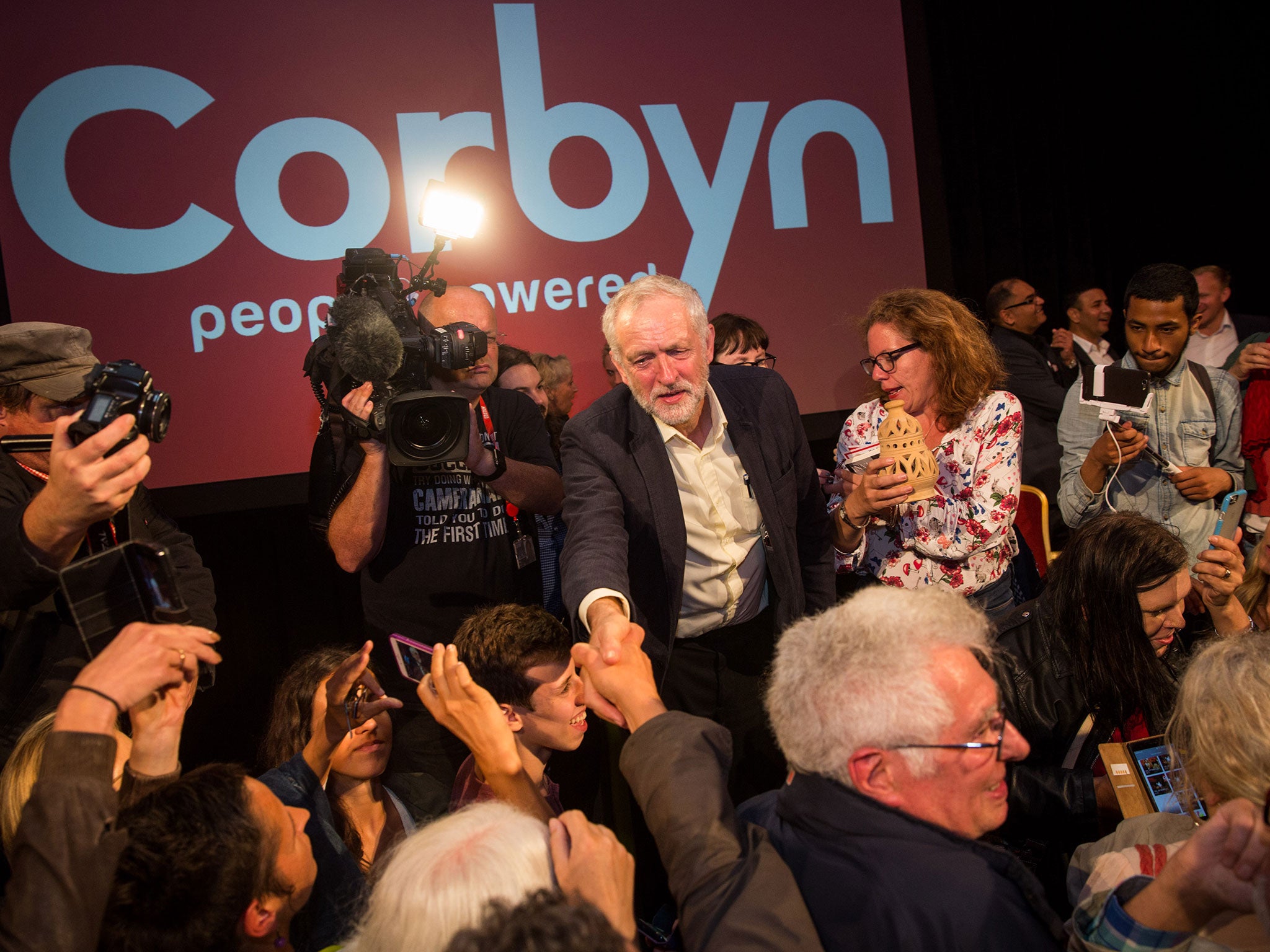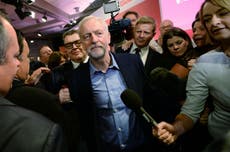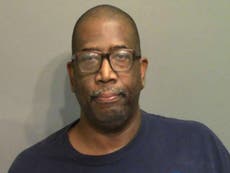Sex education taught me graphic, pointless things about straight people – Corbyn's plan to overhaul it is a breath of fresh air
I'm no Corbynista, but those 'special LGBT+ services' he talks about are worth protecting – I needed them when I was 17 and rejected by my parents

There is a lot of talk, especially in more liberal circles, of how crucial ideas of equality and diversity are. In many cases, the cynic in me would argue that such “diversity” developments are mooted not so much because people truly believe in it, or even understand what it means – rather that it’s become a convenient box-ticking exercise, especially for the left, in the last decade.
So I’m sure you can well imagine my brimming scepticism when I found out that Jeremy Corbyn’s camp were going to be releasing the “Proud of our diversity” manifesto, specifically focussing on LGBT+ issues. If you haven’t seen it, you can have a gander here.
I am barely sympathetic to Labour as a party, and certainly no Corbynista in even the remotest sense. However, upon reading and then re-reading this, I have had to concede that they resonate deeply with me on a personal level.
OK, I get it, most people aren’t gay. However normal we are, we will never be the norm. But the thing is that I have spent my whole life learning about how straight people live. Every film, every TV show I ever watched until my mid-adolescence revolved around straight protagonists of one sort or another. At school I watched several very in-depth information films all about how straight people have sex with each other, and what can happen if you do.
Maybe you are in fact a straight white man, and ideas of diversity and equality seem a bit abstract, however noble. That’s great - after all, it’s taken a straight white man to produce this document. Still, I thought it might be an interesting exercise to put some of what Jeremy says in a personal context, bring it to life a bit if you will - I know so much about you, after all, so let me tell you a bit about us.
Something tucked towards the end of a section imaginatively entitled “Security at work and equal access to justice” was something that really struck a chord - only a couple of sentences, so small you might miss it - “specialist LGBT+ services”. What, you might well ask, could that possibly entail? Gay people are people, after all, so can’t we just use the same services as everyone else?
When I was maybe 17 or so, I was going through a pretty turbulent time at home. My parents were far from being on board with what they saw as a very sinful “lifestyle” that I was sort of “opting” for, and it was all frightfully confusing and disorienting. One night I had had a particularly heated conversation with them that left me feeling the lowest I’d ever felt, then or since, and the set of unused (ostensibly craft-related) knives I had stowed in a box under my bed - until then something of an adolescent affectation - suddenly started feeling a lot more real. I knew I needed to do something.
Within minutes I had contacted an organisation local to me that I had found online, and within an hour I was able to meet two of their counsellors in a nearby car park, discreetly and safely. As with many episodes from that part of my life, much of it remains somewhat blurry - as if it were something experienced by someone else, not me - but I am quite sure that this service made all the difference to me that evening, and I really don’t know what would have happened if it hadn’t been there. That was an LGBT+ service; it’s probably something we should be protecting - family support is never something guaranteed when someone chooses to come out.
Maybe things are different now, but when I was at school I was certainly never taught about the fact that men have sex with men. “Gay” was quite an abstract term applied to people like Elton John, and suspiciously artistic or thespian types. Heterosexual coupling in all its forms was portrayed in vivid and often rather laborious terms, and of course we were all taught how to put on a condom - well, over a test tube at least. At no stage did anyone offer me an explanation as to why I might be interested in boys, though, or even allude to its being a viable alternative pursuit, although I do remember something said in quite general terms about how many boys went through a “phase” of curiosity, and it was nothing to be worried about, essentially that it would pass.
Practices like this in school pave the way for bullying, and can alienate young gay pupils; this was certainly the case for me. But I should say that my school - pupils and teachers alike - was conspicuously supportive when I did come out, and I was very lucky in that respect.
I could go on: the right to PrEP, family-friendly rights in the workplace, combating hate crimes – even the Orlando massacre and Brexit are covered in considerable depth, and I can’t help finding myself almost excited to find a document that so neatly sums up almost all of my concerns as a gay man living in 21st century Britain. Maybe I’m falling for a clever ploy from the cunning Steptoe, anxiously garnering support from every corner as he approaches a crucial election. Maybe though, just maybe, he means what he says. History is written by straight white men, for better or worse (well, mostly worse I suppose), so maybe having one standing with us in such marked solidarity could be a good thing.
Of course, I would have been even more impressed had the front cover not featured two youngish white men kissing, and had been a slightly less archetypal couple - that said, the slight irony of that, the lack of diversity even within diversity, was not lost on me.



Join our commenting forum
Join thought-provoking conversations, follow other Independent readers and see their replies